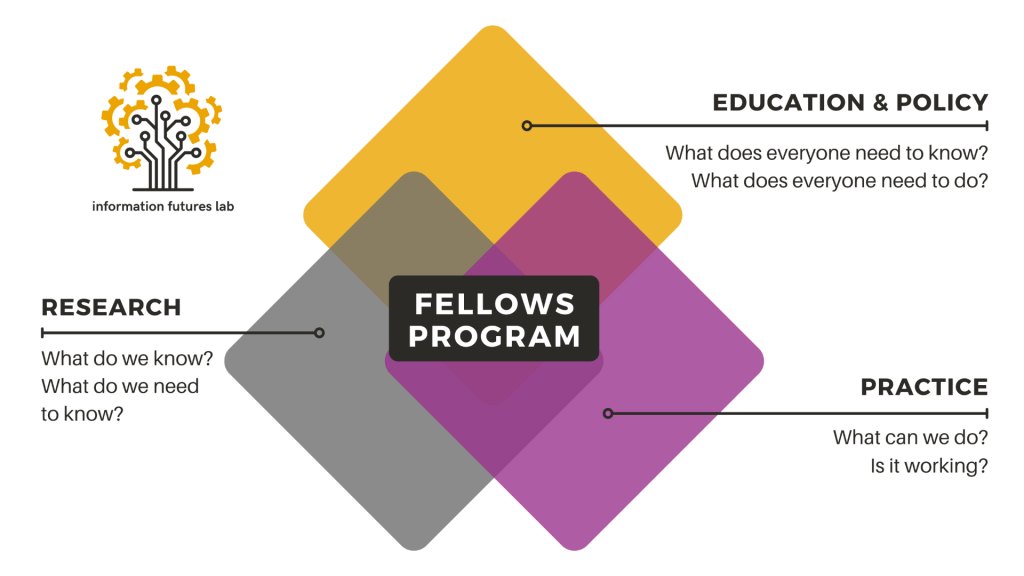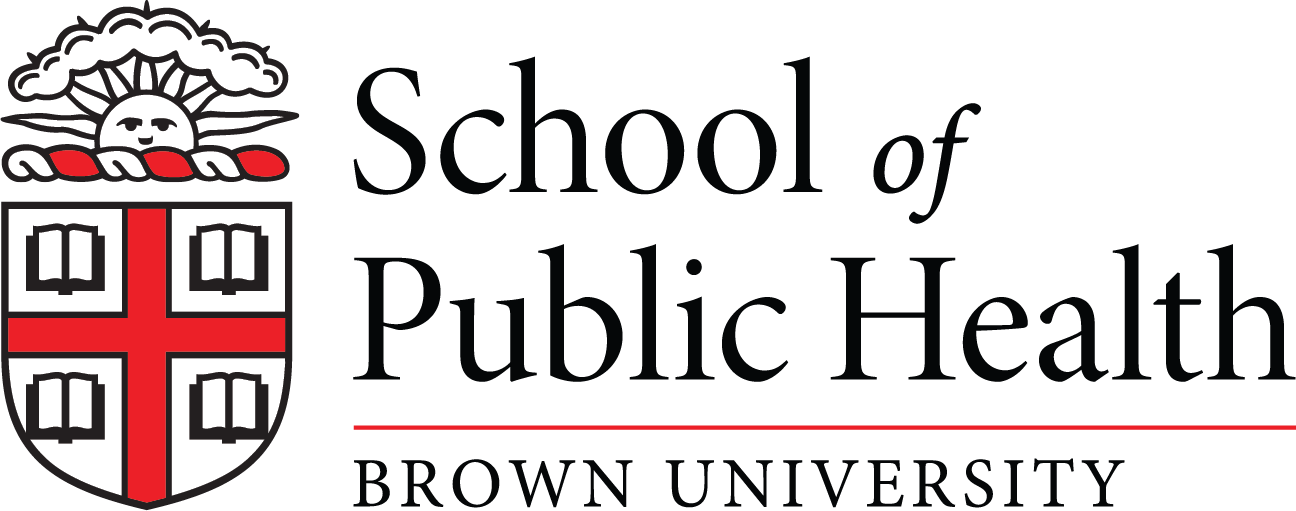“It is time to build a new future for our information spaces.”
SPH Information Futures Lab will drive collaborative research, make emerging evidence accessible, and empower practitioners to design, pilot and evaluate creative solutions
PROVIDENCE, RI – Responding to the urgent need to address the information crisis that threatens to undo major achievements in public health and erode the foundations of democracies, the Brown University School of Public Health is announcing the creation of its Information Futures Lab. The Lab will investigate the harms of misinformation, data deficits, outdated communications practices and other barriers to meeting the information needs of communities. It will bring together researchers and practitioners across fields to co-design, implement and evaluate solutions, one pilot at a time.
Misinformation is just one part of the challenge
“It is time we envision a different future for our information spaces,” said Brown University provost Richard Locke. “The Covid-19 pandemic has made crystal clear how misinformation poisons public discourse, disrupts efforts to respond effectively in a crisis, and interferes with our ability to live healthy lives. But misinformation is just one part of the challenge. We also need to study how we can make our rapidly changing information ecosystems less vulnerable to abuses and more beneficial for society. By creating the Information Futures Lab, our university will become a catalyst for innovation and a partner to those on the front lines who are working to identify effective responses.”
The Information Futures Lab (IFL) will be co-directed by Claire Wardle, an international leader and scholar in the field of misinformation and verification, founder of the pioneering misinformation research and training nonprofit First Draft, and Professor of the Practice at SPH; and Stefanie Friedhoff, a global health and science journalism leader and innovator with deep expertise in public health, crisis response, media ecosystems and knowledge translation, and a Professor of the Practice at SPH.
Public Health taking a leadership role in addressing the information crisis
“We are thrilled to have these experienced leaders build this crucial effort at our school,” said Ronald Aubert, interim dean of the Brown School of Public Health. “Information disorder is one of the biggest health challenges of our time, and we have seen over the past two years how a lack of knowledge, skills and actionable evidence leaves everyone vulnerable. As a discipline, public health needs to become a major force in this area, and rigorously investigate and make visible the mechanisms and the human, economic and social cost of health misinformation.”
“Our new Lab will drive the rapid exploration of evidence-based practices that are fit for our new communications reality, and train a new generation of leaders to address and prevent information challenges,” said SPH academic dean Megan Ranney.
Based at SPH, the Information Futures Lab will be a key innovator in the emerging field of complex information challenges at the intersection of public health, political science, communications, economics, data science, digital humanities, social sciences, medical anthropology and healthcare. The IFL team will work collaboratively with other centers and faculty across the school, Brown University and the world.
Introducing the Information Futures Fellowship
A cornerstone of the Lab’s model will be the Information Futures Fellowship, an innovative program that provides practitioners with the resources, time, research partners and network to develop new ideas, and design and test novel interventions. The first cohort of Information Futures Fellows will join SPH in January.
“A key piece that is missing from our collective work on the information crisis is better connections between research and practice, and more ways to evaluate what actually works and why,” said Wardle. “Many in public health, medicine, community work, libraries, government agencies, at platforms and elsewhere are trying creative approaches every day, but these interventions are too often not being evaluated. Similarly, academic research on these issues is often woefully disconnected to what is actually happening in the field.”
Making research actionable
The Information Futures Lab will drive original research as well as interpret and contextualize a larger body of emerging evidence from relevant fields. The team will collaborate broadly to identify urgent research gaps, and make findings accessible and actionable for other researchers, practitioners and policy makers.
“There is a lot of investigation of what works in the short term, but not enough longitudinal research. And a lot of what we know about how trust and information work is based on research conducted in the U.S. and Europe,” said Friedhoff. “At the Lab, we are building and supporting global communities of practice to make sure approaches and findings are centered in diverse cultural, historical, political, religious and other contexts.”
Examples of work already under way at the Lab include:
a partnership with the World Health Organization to facilitate a global community of Infodemic Communicators who discuss information trends, share best practices, post research and seek expertise;
intervention co-design and research as part of the Equity First Vaccination Initiative, which empowers place-based organizations to help community members navigate an often confusing information environment;
a collaboration with Brown’s Center for Digital Health on the presence and nature of gun-related content on the internet, finding, for example, that 7% of YouTube users consume gun-related content every day.
The Covid-19 Testing Communications Toolkit, which provides tutorials, evidence-based messaging, social media campaigns and illustrations to public health communicators and community organizations who offer Covid-19 testing.
A dynamic team to meet the moment
The Lab builds on the legacy of media verification, journalism education and innovation pioneered by the nonprofit First Draft, with the ongoing work moving to the Lab after six years of groundbreaking work. First Draft’s team of skilled misinformation researchers, investigators and trainers have joined Brown SPH to work with public health, communications, information, data and implementation science practitioners and experts at the school on the build-out of the Lab.

About Claire Wardle
Claire Wardle is co-founder and co-director of the Information Futures Lab, and Professor of the Practice at the Brown School of Public Health. She is considered a leader in the field of misinformation, verification and user-generated content, co-authoring the foundational report Information Disorder: An Interdisciplinary Framework for Research and Policy Making for the Council of Europe. In 2015, she co-founded the nonprofit First Draft, a pioneer in innovation, research and practice in the field of misinformation. Over the past decade she has developed an organization-wide training program for the BBC on eyewitness media, verification and misinformation, led social media policy at UNHCR, been a Fellow at the Shorenstein Center on Media, Politics and Public Policy at Harvard’s Kennedy School, and been Research Director at the Tow Center for Digital Journalism at Columbia University’s Graduate School of Journalism. She holds a Ph.D. in Communication from the University of Pennsylvania.
About Stefanie Friedhoff
Stefanie Friedhoff is co-founder and co-director of the Information Futures Lab, and Professor of the Practice at the Brown School of Public Health. She is an expert at information creation, and studies the interactions between the information needs of communities, misinformation and health outcomes. A collaborative leader, she brings her expertise as a newsroom manager, storyteller and strategist to the Lab. Focusing on global health, crisis response, media ecosystems and knowledge translation, Stefanie has led many innovations, including co-developing new magazines in Germany and founding the Trauma Journalism Program and Global Health Reporting Fellowships at Harvard’s Nieman Foundation for Journalism. In response to the Covid-19 pandemic, she created research translation and verification projects such as GlobalEpidemics.org and the Preprint Sifter, and co-leads new research and policy initiatives including pandemic problem-solving network, crisis communications guidance, and interventions to build vaccine confidence in communities of color. A 2001 Nieman Fellow, she serves as an expert adviser to the Pew Research Center, an expert contributor to the Covid Collaborative, and a trustee to the Trust for Trauma Journalism.
